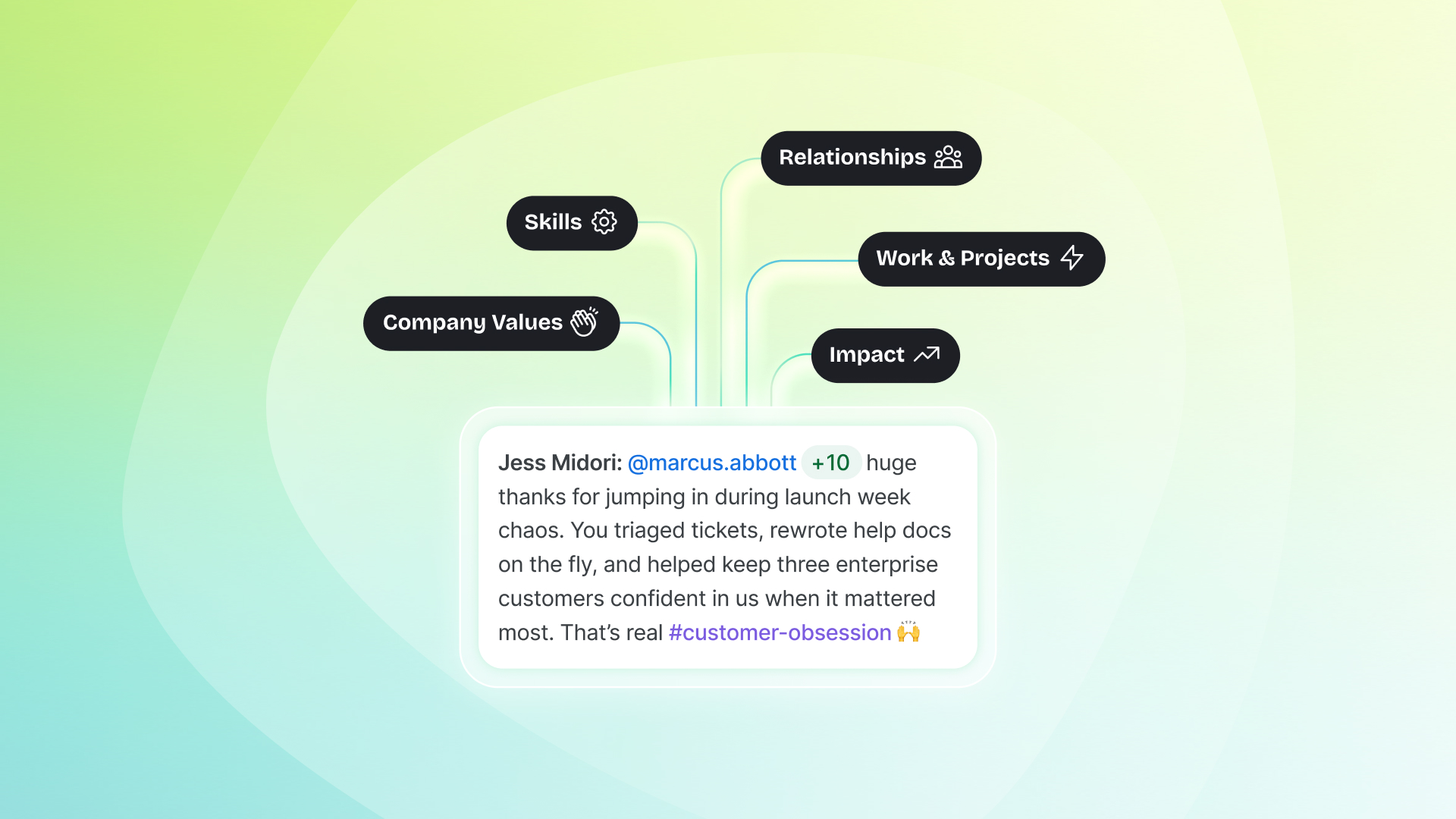19 Questions You Should Ask Your Employees Every Week

As a manager, the to-do list is probably never-ending (and a little overwhelming). You’re accountable for leading key projects, driving business results, building a high-performing team—the list goes on. But arguably your most important responsibility is taking care of your employees, checking in with them regularly to see what’s going on in their professional and personal lives, and establishing deep connections.
One thing that can make these check-ins more difficult is knowing exactly what to say to your direct report. Simply asking for a status update is not ideal, since these meetings should be more like conversations than stand-ups. That’s why we’ve developed this guide to the questions you should be asking employees during these chats; going in prepared lets you get more out of them.
These recurring questions to ask employees will help you have deeper, more insightful, more actionable conversations. They’ll help you spot any potential challenges that might lead to disengagement, burnout, or turnover while you still have the opportunity to address them.
You don’t need to ask every single question every single week in your one-on-one meeting, but rotating through them regularly will help you build a more trusting and open relationship with your direct reports. (And bust through those awkward silences too!) Here are the questions you should be asking regularly, with added guidance on how to approach them and when exactly to use them.

Must-ask questions for employees:
1. How you are feeling in two words?
It may be tempting to open up each 1:1 with the question "how are you?" It's equally temping to simply answer "I'm fine," before moving on to pressing questions around work. Take this moment to ask your direct reports how they are feeling in two words. Whether they say "stressed and "overwhelmed" or "energized and happy" gives you a lot of important information; plus, this is a natural way to open up into a deeper conversation. Relationships are a two-way street so consider answering the question yourself, too!
2. What’s top of mind right now?
Adding this question can be helpful when you sense your direct report has something to say but they’re not comfortable diving right in. It opens up a space of care and interest that can help an employee open up about a concern or an issue.
3. What are your plans and priorities for this week?
Asking your employees about their plans for the week can help you get a sense of what they’re tackling. It also gives you the chance to follow up with more questions about specific projects or to rearrange their priorities if you feel something else is more urgent.
Questions about changes and challenges
4. Do you have questions about [recent changes]?
If there was recently a change in your team or across the whole organization, following up with your team to ensure they are clear on what it means is essential. It shows them that you recognize the change can be challenging, and that they can come to you with questions as those changes take place.
5. How do you feel about the future of the company? Do you feel confident about, and aligned with that future?
After major changes, like restructuring or layoffs, employees can feel destabilized and demotivated, especially if they feel those changes are taking the company in a direction that isn’t aligned with their goals or vision for their future. Asking them directly about their feelings on these changes can help you identify who is at risk for turnover as a result of those changes so you can act proactively (especially for your top performers).
6. What’s energized you recently?
Knowing what motivates and energizes your employees can help you discover how to engage them more deeply in their roles. You can then direct them to more tasks that they find motivating and engaging to prevent burnout and up their satisfaction levels. If they haven’t found anything energizing recently, it’s time to switch some things up because this person is a burnout risk.
7. What’s challenged you recently?
Challenges aren’t always bad—sometimes they’re a way of stretching to see what your capabilities are. Checking in to see if your reports have met any challenges recently can give you a feel for growth opportunities but also their stressors.
8. What’s one thing you learned this week?
Learning and growing are key elements of engagement, so asking employees what they’ve learned recently is a great way to check in on that progress. If they’re consistently not learning anything new, that can indicate that they’re growing beyond their role and might welcome a flex assignment, stretch project, lateral move, or even a promotion.
9. What can we celebrate?
This question is especially great if your employee has been going through rough times, either professionally or personally (or both). It gives you both an opportunity to find something good to celebrate together, and that can be the basis of a powerful connection.
10. What needs work or attention right now?
Because of how open-ended this question is, it can surface issues (or opportunities) that you might not have known about or had at the top of your list. It also identifies an employee’s urgent priorities or the roadblocks that keep your culture from being a high-performing one.
11. How is everything going with the team/your coworkers?
Inter-office relationships are critical to happiness and satisfaction, but they can also be tricky. And your employees might be hesitant to raise concerns for fear of seeming petty. Checking in proactively can help you surface any issues before they become bigger problems, and develop a better understanding of your team’s interpersonal dynamics.
Questions about career development
12. How are you progressing towards your bigger career and life goals?
One of your biggest tasks as a manager is to support employees’ career goals, but with everything else you have to do, this can get pushed to the wayside. But regularly asking employees this question can give you an excellent sense of their aspirations, motivations, and what’s driving them professionally so you can help them get there.
These questions and a commitment to developing better career paths are vital to holding onto your team: according to Pew Research, 63% of people who left a job in 2021 said a lack of advancement opportunities was their main reason for leaving.
13. How can I support your career goals?
Checking in with each direct report to see how, specifically, they’d like you to support their career aspirations gives you actionable takeaways you can put into place right away. It also offers them support while giving them a sense of autonomy and ownership over those career goals.
14. Is there someone you’d like to learn from, within or outside of the company?
This question gives you the opportunity to find mentors for your employee, especially if they’re interested in a different career path long-term. It also helps you identify development opportunities that might not arise organically.
15. How are you growing? How would you like to grow?
Only 26% of employees say their organization has challenged them to learn a new skill. This question can help you open up a discussion with your direct reports about the skills and experiences they’d like to gain to build their careers. And if they currently don’t feel like they’re growing at all, that’s a warning signal for disengagement and turnover.
Questions about your relationship
16. Am I doing a good job supporting you?
This is a great way to ask your team members how you’re helping them achieve their goals in their role, and in everything they do at work. Do they feel seen, supported, valued, and recognized for their contributions?
17. Where can I improve?
Asking for and receiving feedback isn’t easy. But that’s also why it’s so important: you won’t know how you can improve as a manager and leader until you ask your people. This question opens up a safe space for employees to share openly, so honor their trust and candor by making changes where you can.
18. What can I do to make your job easier?
As a manager, a major part of your role is to smooth out speed bumps and remove roadblocks in your team’s path so they can excel at their work. Asking directly what steps they’d like you to take to make their lives easier, whether it’s a big ask or a little tweak, can significantly improve your working relationship.
Wrapping up
19. Is there anything we didn’t cover this time that we should address next week?
In busy seasons or weeks, it can be hard to cover absolutely everything in a 30-minute check-in (or less). Taking the last few minutes to ask about anything you didn’t get to and putting it on the agenda for your next 1:1 ensures that it won’t be forgotten, and gives you a head start on next week’s agenda too.
Takeaways
Regular 1:1s and check-ins with your employees offer a valuable chance to connect and build a stronger relationship. These questions to ask employees should give you a great foundation for these conversations so you can focus on listening and learning, instead of worrying about what to say next.
Want to see smarter 1:1s in action? Sign up for Bonusly for free today to make your meetings work better for you.
.jpg)







